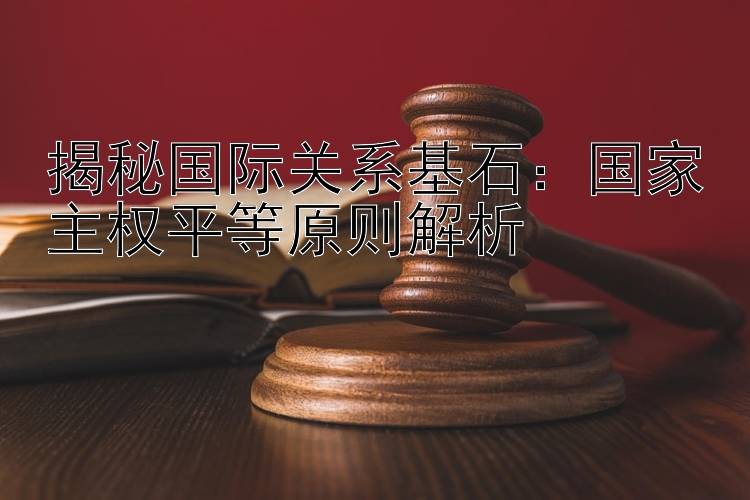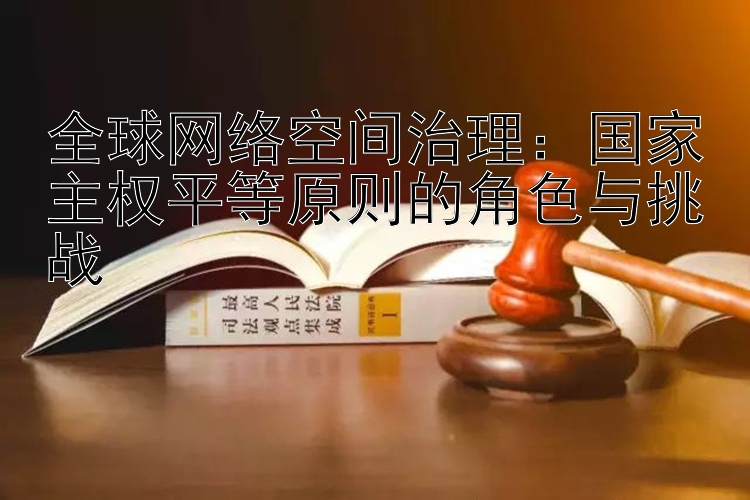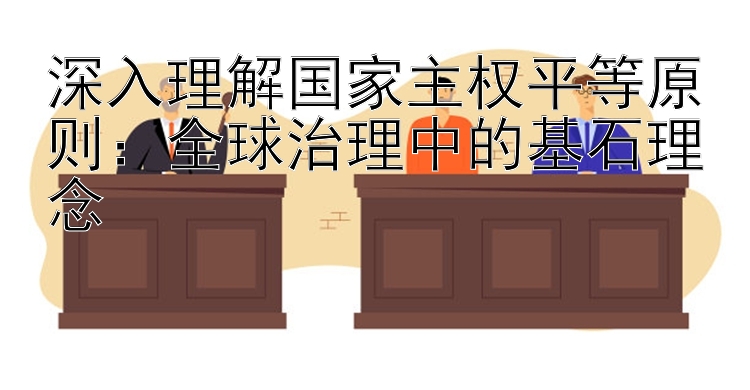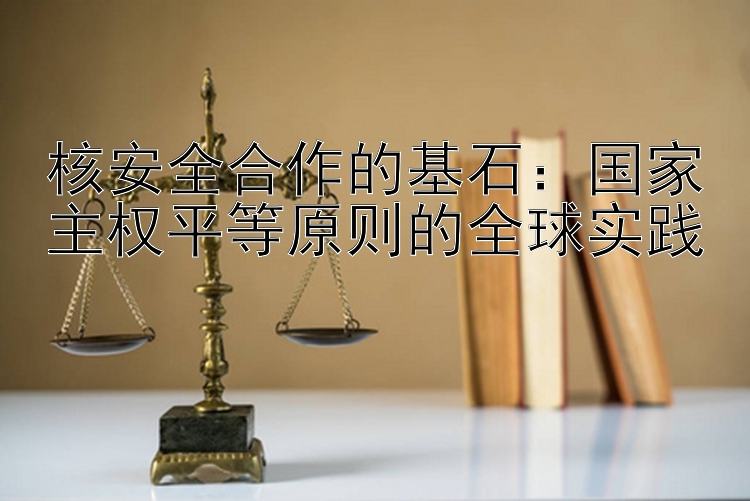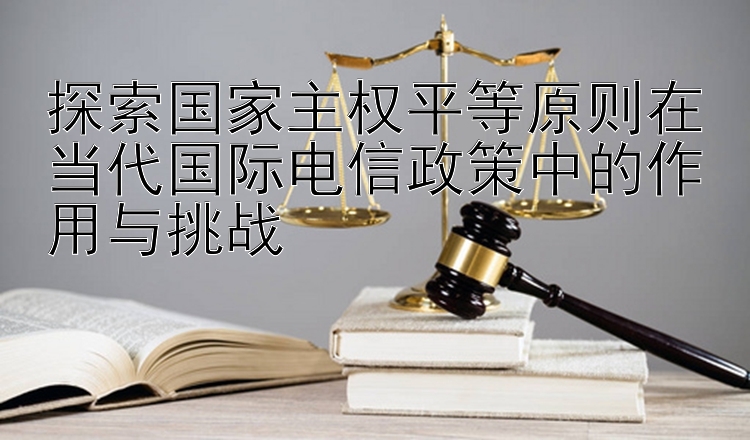在现代国际法中,国家主权平等原则(Principle of Equal Sovereignty of States)是国际关系中的一个基本原则,它意味着所有国家不论大小、强弱、贫富,在国际法上都是平等的,它们享有平等的权利和义务,并应得到其他国家的尊重。这一原则体现在《联合国宪章》第二条第一项中,即“各会员国应以和平方法解决其国际争端”,以及第三条第七项中的“本组织于每一会员国之领土内仅在该会员国同意下得执行职务”。然而,随着全球化的深入和国际关系的复杂化,这一原则在实际应用中面临着诸多挑战。
1. The Principle of State Sovereignty in International Law
State sovereignty is a fundamental concept in international law, which refers to the inherent right of states to govern themselves without external interference within their own territory and to independently determine their domestic affairs and foreign policy. This principle is based on the recognition that each state has its own distinct national interests, culture, history, and political system. The sovereign equality of states means that they are all equal before international law and should be treated equally by other states. This includes the respect for territorial integrity and political independence, as well as non-intervention in the internal affairs of another state.
2. Challenges to the Equality of Sovereign States
Despite being a cornerstone of modern international relations, there are several challenges to the principle of sovereign equality:
(a) Economic Imbalances
Economic disparities among countries can lead to unequal treatment under international law. Wealthier nations often have more influence over global economic institutions such as the World Bank or IMF, which can result in policies that favor these states at the expense of poorer ones. Additionally, trade agreements may not always be negotiated with full consideration given to the differing capacities of signatory parties.
(b) Cultural Diversity
Cultural differences between countries can sometimes create misunderstandings and conflicts that challenge the notion of universal equality. For instance, some cultures may place greater emphasis on individual rights while others prioritize collective welfare; this divergence could complicate efforts to reach consensus on certain legal issues.
(c) Human Rights Issues
Human rights concerns frequently test the limits of state sovereignty. When a government violates human rights within its borders—as defined by international treaties like the Universal Declaration of Human Rights—other states must decide whether to intervene or allow abuses to continue out of respect for sovereignty principles.
(d) Environmental Protection
Environmental protection measures also present difficulties due to competing priorities between sustainable development goals versus immediate socioeconomic needs across different regions worldwide where environmental standards vary greatly from one country/region towards another(s).
3. Case Studies Illustrating Challenges To State Sovereignty Principles:
Case Study 1: Kosovo's Independence
Kosovo declared independence from Serbia in 2008 following years of conflict and UN administration. While most Western countries recognized Kosovo's independence, including key players like the United States and major European Union members, Serbia continues to reject Kosovo's sovereignty claiming it violated Serbia's territorial integrity and undermined the principle of non-interference in internal affairs.
Case Study 2: Syria And Foreign Intervention
The ongoing civil war in Syria has raised questions about when intervention is justified to protect civilians from atrocities committed by their government. Arguments over humanitarian intervention clash with assertions of state sovereignty leading to debates regarding appropriate responses by regional powers and international organizations such as NATO or the UN Security Council.
4. Conclusion:
In conclusion, despite facing various challenges rooted in economic disparity cultural diversity human rights concerns & environmental protection mechanisms among many others –the principle remains central component within contemporary framework governing interstate relationships today because it provides foundation upon which mutual respect trust cooperation peace justice order security prosperity shared responsibility community solidarity might flourish sustainably equitably fairly universally everywhere possible always hopefully forevermore amen!
